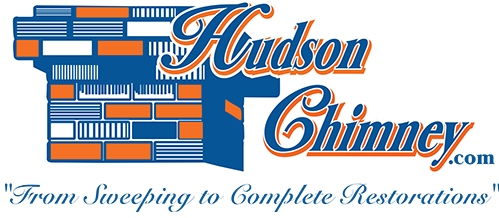by Mark Hudson | Mar 10, 2015 | Fire Safety Tips
You may or may not have a fireplace in your home, but even if you do not have a fireplace, there is always a possibility of a house fire. If a fire does break out in your home, you may only have as little as two minutes to be able to escape. The best way to protect yourself and your family is the identification and removal of all fire hazards from your home. Another excellent way to protect yourself, your family, and your home is to know and follow important home fire safety tips. At Hudson Chimney, we like to educate our customers on fire safety, and we would like to share with you some fire safety tips we feel are essential.
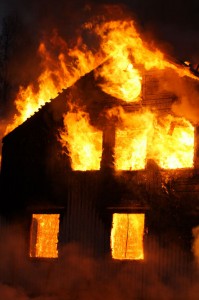
Install Multiple Smoke Alarms Throughout Your Home.
The Red Cross states that 60% of house fire deaths occur in homes with no smoke alarms installed. Smoke alarms should be installed on every level of your home, inside bedrooms, and outside sleeping areas. Make it a monthly routine to check your smoke alarms to be sure they are still working properly. Smoke alarms will usually last for at least 10 years; however, you will have to change the batteries to keep them working properly.
Create an Escape Plan to Have in Place for Your Entire Family.
Everyone in your home should know two ways to escape from every room in your home. Designate a meeting place outside the house to be sure everyone has gotten out safely. Use a two-minute time frame when you are planning your escape routes. Practice your escape plan with your family on a regular basis to be sure everyone knows how to proceed if an emergency should occur. Include waking up to smoke alarms, low crawling, and meeting outside during your escape plan practices. Be sure everyone in the house knows how to dial 911. Teach family members how to stop, drop, and roll if their clothes happen to catch on fire.
Be Safe in the Kitchen.
Never leave the kitchen unattended when cooking, frying, or broiling food, and do not leave your home when roasting, boiling, baking or simmering food. Set a timer to alert you when your food should be done cooking, baking, boiling, or roasting. Keep all flammable items like pot holders, towels, clothing, and plastic away from the stove. Keep all pets off cooking surfaces and countertops to prevent them knocking things onto the burners and to protect them from possibly burning themselves.
Use Common Sense.
Keep flammable items at least three feet away from space heaters, fireplaces, and other heating appliances. Turn off portable heaters when you leave the room and when you go to sleep. Never smoke in bed. Talk to your children on a regular basis about the dangers of fire. Always keep matches and lighters out of reach from children.
Know the Dangers of Carbon Monoxide.
Just as you do with smoke alarms, install carbon monoxide detector alarms on every level of your home, inside bedrooms, and outside sleeping areas. If one of these alarms goes off to alert you of the presence of carbon monoxide in your home, move quickly to the fresh air outdoors or stand by an open window or door. Never use generators, grills, camp stoves, or any other gasoline, propane, natural gas, or charcoal burning devices inside a home, a garage, basement, crawlspace, or other partially enclosed space.
Want to know more home fire safety tips? Contact our staff at Hudson Chimney. Fire safety education is part of our duties as CSIA-certified chimney sweeps, and we take pride in teaching our customers about fire safety procedures and precautions.
by Mark Hudson | Feb 6, 2015 | Chimney Service
Believe it or not, spring is on its way, and fireplace season will be slowing down. To be sure your chimney is safe after a long and cold winter, scheduling your annual chimney sweeping and inspection now is essential, especially if your chimney is in need of important repairs. At Hudson Chimney, one of our busiest times of the year is the spring, and if you procrastinate for too long, you may have to wait for several weeks before you can arrange an appointment for our certified technicians to visit your home to clean, examine, and repair your chimney. According to fire safety organizations such as the National Fire Prevention Association (NFPA), it is recommended you schedule a chimney sweeping and inspection once every year. We would like to share with you the important chimney maintenance steps our chimney technicians will take to find essential repairs needed to make your fireplace and chimney system safe.
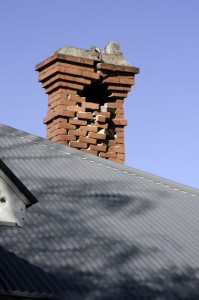
CHIMNEY SWEEPING
When the Chimney Safety Institute of America (CSIA)-certified sweeps at Hudson Chimney clean your chimney after winter, our main concern is removing all of the creosote deposits that have accumulated on the walls of your chimney. Forming naturally as the by-products of combustion (smoke, gases, tar fog, vapors, etc) exit the cooler walls of your upper chimney, creosote is the highly combustible result of the condensation that occurs. Creosote can be either black or brown, and its appearance can vary. Whether it is sticky and gummy, crispy and brittle, or shiny and hard, creosote, especially in large amounts, is extremely flammable, which makes it the cause of a majority of chimney fires. Getting rid of these creosote buildups after winter’s heavy fireplace usage is essential to the safety of your chimney.
CHIMNEY INSPECTING
Hudson Chimney takes pride in performing detailed post-winter chimney inspections because we want to find any damage that needs repairing to ensure the safety of your fireplace and chimney. Of course, we seriously examine every part of your chimney; however, there are specific repairs we are looking for, including the following:
damaged or deteriorated masonry — Loose bricks and chipped mortar on the exterior of your chimney are sure signs of water penetration damage, and this alerts us to the possibility of water leaking inside your chimney that creates even more damage to its interior. If this masonry damage goes unrepaired, you will end up with costly repair work, including a possible rebuild of your entire chimney.
cracks in the chimney cap — Your chimney cap serves as protection from both water and animal intrusions of your chimney. A deteriorated chimney cap serves no help at all to your chimney. We can repair cracks and other damage to chimney caps as well as install new caps if the existing caps are beyond repairing.
cracks and holes in the chimney flue liner — Water leaks can cause serious damage to the liner of your chimney that can endanger your family’s health. A deteriorating flue liner allows toxic gases like carbon monoxide to leak into your home. Repairing or replacing a damaged chimney flue liner will keep those gases exiting out of your chimney instead of infiltrating the interior air of your home.
Save yourself the hassle of waiting for weeks to maintain your chimney after winter by contacting Hudson Chimney now. We are happy to schedule an appointment for your annual sweeping and inspection as well as perform all necessary repairs.
by Mark Hudson | Dec 15, 2014 | Firewood
If you have a wood burning fireplace or stove, you may wonder if there is anything of significance that you can do to maintain the efficiency, safety, and health of your appliance. The answer is yes! By choosing the best firewood to burn in your appliance, you can protect your chimney or stovepipe from rapid creosote build-up and your home from dangerous chimney fires. Not only this, but the right firewood will help you to create fires that are warmer and more enjoyable.
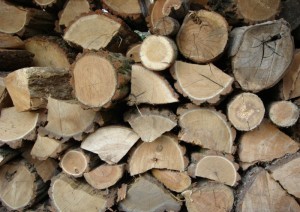
Regardless of the type of woodburning appliance you own, you should only burn seasoned firewood. According to the Chimney Safety Institute of America, the distinction between seasoned and unseasoned firewood is its moisture content. Seasoned firewood has a low moisture content, usually between 20 and 25 %. Unseasoned firewood, on the other hand, can have a moisture content as high as 45 %. Burning firewood with a higher moisture content can cause you and your chimney a number of problems, from the unpleasant to the dangerous. You will have trouble enjoying your chimney if you burn unseasoned firewood because of the unpleasant smell and smoke it produces. However, your biggest concern is that the water in unseasoned firewood will allow for creosote to rapidly build up in your chimney. Creosote is highly flammable, creating a hazard for chimney fires, and can build up into glazed creosote, which can only be removed from your chimney by a professional with chemicals.
If you chop your own firewood, it is easy to know if it is seasoned or unseasoned. Simply be sure to cut your firewood to length six months before you plan to use it in order to give water in the wood time to environment. Cutting your wood to length opens up the microscopic tubes in the wood that hold water, which allows the water to escape.
If you buy your firewood, it is a little more difficult to tell if your firewood has been properly seasoned. The best way to be sure your firewood has been properly seasoned is to buy it six months before you intend to use it and store it properly. However, seasoned and unseasoned firewood have characteristics that differentiate them from each other that you can utilize to see if the firewood you are buying has been seasoned. Seasoned firewood has darker ends and more cracks than unseasoned firewood and also tends to be lighter. Seasoned firewood also makes a clunking rather than a thudding noise when it is hit.
Whether or not you buy or chop your firewood, you must be sure that it is properly stored. A wood shed is the best place to store firewood. However, you can also store wood in a sunny location as long as you remember to cover the wood when it rains or snows. No matter where you store it, make sure that air is allowed to circulate to promote evaporation and try to store the wood off of the ground.
Give Hudson Chimney a call if you are unsure if you are burning the correct kind of firewood or if you have concerns regarding creosote build-up. The professionals at Hudson Chimney know how to keep you and your home warm and safe!
by Mark Hudson | Nov 30, 2014 | Ash Disposal
If you have a wood burning chimney, you may be unsure of how to properly and safely dispose of the remaining ash in your firebox. You may also be unsure as to how often you should have your fireplace and chimney professionally cleaned. The experts at Hudson Chimney have the expertise and skill necessary to answer all of your questions regarding your fireplace and chimney as well as to clean and help you maintain and repair your chimney.
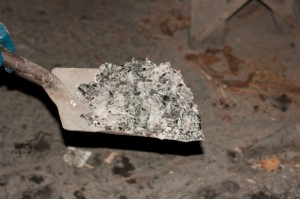
When you are emptying your firebox of ash, it is important that you protect your hands from leftover embers by wearing leather gloves. Use a metal scoop to transfer the ash from your firebox to a metal bucket and add a little water. Place the bucket in a location away from any combustible materials (outside the home is best), and let it sit. It is also a good idea to use the metal scoop to mix the ash and break up any chunks before you let it sit. According to The National Garden Association, the ash can be used as a fertilizer for your gardens. However, this is not the case when you burn cardboard, treated wood, or painted wood, which create toxic ash and should not be burned in the first place, as they also release toxic fumes when they are burned.
When you do remove ash from your firebox, according to the Chimney Safety Institute of America, it is beneficial to leave some of the ash. The CSIA recommends that you leave a layer of ash that is one inch thick on the bottom of your firebox in order to make building and maintaining a fire easier, create hotter fires, and protect the floor of you firebox. However, it is still important to clean your firebox because leaving more than a one inch layer can lead to the premature burn out of your grate as well as decrease the amount of fuel you can add to your fire. If you do leave a layer of ash, make sure to remove this layer at the end of chimney season, when you will no longer be using your chimney.
It is also important to have your chimney cleaned by a professional at least once a year. Only a professional can thoroughly clean your chimney as well as remove all of the creosote that has built up. Creosote, which is very flammable, is created as a byproduct of wood burning fires when hot smoke and gases hit the cool sides of your chimney. It is important to have creosote professionally removed so it does not build up into glazed creosote, which can only be removed from your chimney with chemicals.
Call Hudson Chimney if you have any questions about the proper disposal of ash or if you have not had your chimney cleaned yet this year. The experts there have the skill to provide you with a clean, safe, and efficient chimney for the winter.
by Mark Hudson | Sep 30, 2014 | CSIA Certified
When looking for a chimney sweep to entrust with the task of cleaning and inspecting your chimney, you may wonder how you are supposed to distinguish a good chimney sweep from a bad one. After all, you want to hire a professional who knows what he or she is doing and who can help you to protect your home from the dangers that owning a chimney can present. The Chimney Safety Institute of America is a non-profit organization that reviews and certifies chimney sweep companies in order to provide homeowners with a standard for their chimney needs.
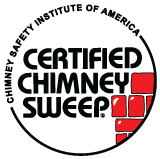
To be CSIA certified, a chimney technician must attend a review session and pass an exam covering Successful Chimney Sweeping (2011), National Fire Protection Agency 211 (2013), and the 2006 International Residential Code. Anyone applying for certification must also sign the CSIA code of ethics and pay an annual fee. In order to remain certified, this process must be repeated by the technician every three years.
These procedures for certification create a method for homeowners to determine if a chimney sweep is qualified to clean and inspect a chimney in a professional and informed manner. Chimneys and appliances can cause fires and carbon monoxide leaks if not properly maintained. Therefore, making sure your chimney sweep knows what he or she is doing in addition to being dedicated to helping you detect and fix potential problems is of the utmost importance.
It is significant to note that the CSIA not only seeks to educate and evaluate technicians, but also to provide an ethical code for professionals to follow. When technicians sign this code, they pledge to conduct business in an honest and fair manner, as well as to remain knowledgeable and up to date on all chimney standards and procedures. They also agree to do their best to educate you, the consumer, and to act in a professional and respectful manner.
Hudson Chimney is certified by the CSIA, so you can be sure that you will be in good hands. The technicians at Hudson Chimney have been servicing the Jacksonville, Florida Area for over thirty years, ensuring their clients clean, safe, and warm homes with efficient heating systems. You can trust the professionals at Hudson Chimney to be knowledgeable in their skills and to provide you and your appliances with service of the highest quality.
If you have any questions about CSIA certification or policies, or if you have any questions about chimneys and appliances as a homeowner, be sure to check out CSIA.org for more information. Their website is an informative and reliable resource of educational material for your benefit.
Also, if your chimney has not been serviced this year yet, schedule an appointment with a technician at Hudson Chimney as soon as possible. The fall and winter are busy for any chimney servicing company, and the sooner you call, the more likely your home will be prepared for the colder winter months. The professionals at Hudson Chimney will make sure your chimney is prepared!
